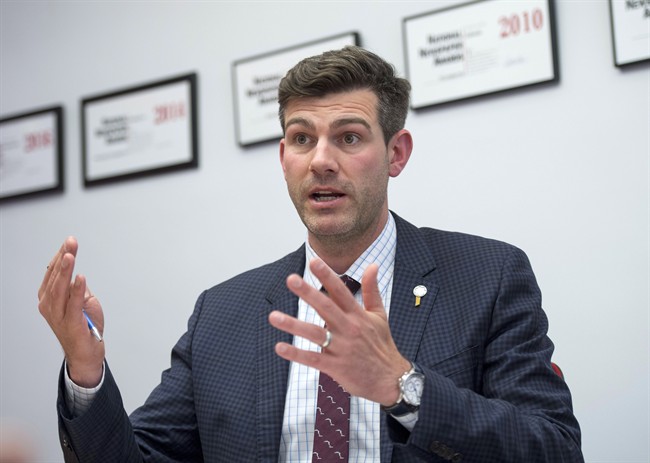While he remains confident this year will bring some solid construction news from both the feds and the province so that supportive housing will be built in Edmonton, Mayor Don Iveson says there will be an operations plan put in place some time in 2018 to pull everything together.

Iveson, in his year-end interview with 630 CHED News, said there are two thrusts to the urban wellness plan known as Recover. So far, the ten-year plan to end homelessness has resulted in the construction of only 200 supportive housing units, where 1,000 was contemplated. In the meantime, a strategy is being fine-tuned.
“There’s a lot of resources going into the sector today and a lot of players who are working very, very hard to support vulnerable people, but there isn’t a coordinated strategy,” Iveson said.
“That’s where Recover comes in. The city with support from the province and with advice actually including some folks from Harvard are helping us out with this. We are developing a coherent strategy.”
READ MORE: Alberta government unveils new $1.2B affordable housing strategy
It’s to find housing for the addicted and mentally ill, and more importantly provide them with programming so they can better fend for themselves and not leave them abandoned.
“Less of a revolving door approach and more of an on-ramp approach,” the mayor said.
“That’s not going to happen overnight but we’re preparing that in consultation with Boyle McCauley, Central McDougall, Chinatown and the Downtown Business Association so that we have community buy -in, agency buy-in, people with lived experience.
- How caregiving impacts a generation of Canadians: ‘Unpaid work does not end’
- Thousands of Canada’s rail workers have a strike mandate. What happens now?
- Bird flu: Experts urge more surveillance in Canada — before it’s too late
- Can the Bank of Canada cut rates before the U.S.? What Macklem, economists say
“We need their buy-in as well, and then we need a strategy to go forward because we’ve got to break some of these cycles.”
READ MORE: Alberta changes rules for those applying for affordable housing
A key question, especially after the controversial project in Terwillegar was cancelled due to public push-back a few years ago, is how to make sure the surrounding neighbourhoods can recover from Recover. Iveson says work is already underway with public consultation, led by Councillor Michael Walters.
“We do need to make sure that housing is not over-concentrated in any one part of the city,” Iveson said.
“So that does mean distribution of those permanent supportive housing units. But if they’re well managed, they have no more impact on social disorder in a neighbourhood than an old folks home. And we’ve seen examples of them well managed here in the city and elsewhere in the world.
“There certainly will be questions. And there’ll be opposition from people who fear something unknown in their community, but I think being able to tour people through working examples of this like Ambrose Place, which has been highlighted in the media many times as a successful example, I think you give people evidence, and you give people commitments around good neighbour agreements.
“That’s not going to convince everybody, but if the alternative is, we leave 1,100 or 1,200 hard-to-house people out on the street forever, consuming in most cases six figures worth of police, justice and health care resources, and in many cases, seven figures, then from a human dignity point of view there’s a strong case to be made that it’s better to build this housing than leave the problem unchecked.”
READ MORE: Alberta government announces more than $5.6M in funding for affordable housing planning
Iveson said the next few months are intended to get all agencies, the police and Alberta Health Services all going in the same direction.
“Once we have that strategy, then we can determine what are the right projects to build in terms of physical spaces for our wellness centre or for some consolidated approach, and does the Remand Centre fit into that or not,” he said.
“But you have to have a strategy first, and that’s what we’re working on in consultation with community right now, and I’m hoping over the next few months and later into this year we’ll get those answers and have a plan that everyone can buy into.”
Then letting the community know what’s what, Iveson says.
“What it is, why it is needed from a broader societal benefit point of view and how it’s going to be managed in ways to mitigate the impacts that people might be afraid of.”



Comments